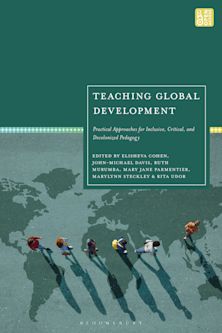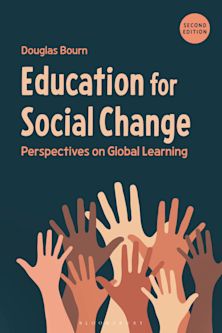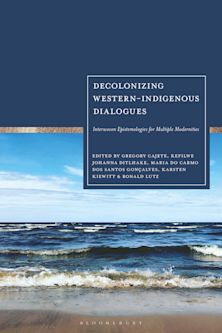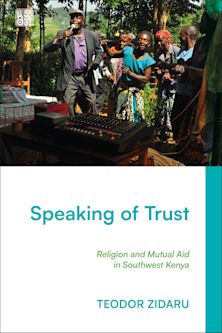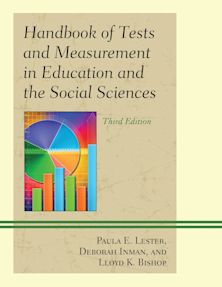- Home
- ACADEMIC
- International Development
- Society, Culture and Development
- Sharing Our Stories of Survival
Sharing Our Stories of Survival
Native Women Surviving Violence
Sarah Deer (Anthology Editor) , Bonnie Clairmont (Anthology Editor) , Carrie A. Martell (Anthology Editor) , Maureen L. White Eagle (Anthology Editor) , J Agtuca (Contributor) , Judi Armbruster (Contributor) , Diane E. Benson (Contributor) , Mary Black Bonnet (Contributor) , Sally Brunk (Contributor) , Lea Carr (Contributor) , Rose L. Clark (Contributor) , Amanda D. Faircloth (Contributor) , Lisa Frank (Contributor) , Joy Harjo (Contributor) , Brenda Hill (Contributor) , Eileen Hudon (Contributor) , Carrie L. Johnson (Contributor) , B.J Jones (Contributor) , Karlene (Contributor) , Kochuten (Contributor) , Charlene A. LaPointe (Contributor) , Jayci Malone (Contributor) , Sarah Michèle Martin (Contributor) , Tracy Meyer (Contributor) , Frances Monroe (Contributor) , MariJo Moore (Contributor) , Eleanor Ned-Sunnyboy (Contributor) , Nila NorthSun (Contributor) , Stormy Ogden (Contributor) , Juanita Pahdopony (Contributor) , Kim Querdibitty (Contributor) , Sharon Lynn Reyna (Contributor) , Venus St. Martin (Contributor) , Kim Shuck (Contributor) , Petra L. Solimon-Yeager (Contributor) , Kelly Gaines Stoner (Contributor) , George Twiss (Contributor) , Danielle G. Van Ess (Contributor) , Hallie Bongar White (Contributor) , James G. White (Contributor) , Coya Hope White Hat-Artichoker (Contributor) , Victoria Ybanez (Contributor)
- Textbook
Sharing Our Stories of Survival
Native Women Surviving Violence
Sarah Deer (Anthology Editor) , Bonnie Clairmont (Anthology Editor) , Carrie A. Martell (Anthology Editor) , Maureen L. White Eagle (Anthology Editor) , J Agtuca (Contributor) , Judi Armbruster (Contributor) , Diane E. Benson (Contributor) , Mary Black Bonnet (Contributor) , Sally Brunk (Contributor) , Lea Carr (Contributor) , Rose L. Clark (Contributor) , Amanda D. Faircloth (Contributor) , Lisa Frank (Contributor) , Joy Harjo (Contributor) , Brenda Hill (Contributor) , Eileen Hudon (Contributor) , Carrie L. Johnson (Contributor) , B.J Jones (Contributor) , Karlene (Contributor) , Kochuten (Contributor) , Charlene A. LaPointe (Contributor) , Jayci Malone (Contributor) , Sarah Michèle Martin (Contributor) , Tracy Meyer (Contributor) , Frances Monroe (Contributor) , MariJo Moore (Contributor) , Eleanor Ned-Sunnyboy (Contributor) , Nila NorthSun (Contributor) , Stormy Ogden (Contributor) , Juanita Pahdopony (Contributor) , Kim Querdibitty (Contributor) , Sharon Lynn Reyna (Contributor) , Venus St. Martin (Contributor) , Kim Shuck (Contributor) , Petra L. Solimon-Yeager (Contributor) , Kelly Gaines Stoner (Contributor) , George Twiss (Contributor) , Danielle G. Van Ess (Contributor) , Hallie Bongar White (Contributor) , James G. White (Contributor) , Coya Hope White Hat-Artichoker (Contributor) , Victoria Ybanez (Contributor)
- Textbook
Inspection copy added to basket
This title is available for inspection copy requests.
Please note our inspection copies are only available in ebook format, and are fulfilled by VitalSource™. If an ebook isn’t available, please visit our inspection copy page for more information.
Buy from Bloomsbury eTextBooks
You are now leaving the Bloomsbury Publishing website. Your eBook purchase will be with our partner https://www.vitalsource.com.
Your credit card statement will show this purchase originating from VitalSource Technologies. They will also provide any technical assistance you might require.
You must sign in to add this item to your wishlist. Please sign in or create an account
Description
A general introduction to the social and legal issues involved in acts of violence against Native women, this book's contributors are lawyers, social workers, social scientists, writers, poets, and victims. In the U.S. Native women are more likely than women from any other group to suffer violence, from rape and battery to more subtle forms of abuse, and Sharing Our Stories of Survival explores the causes and consequences of such behavior. The stories and case-studies presented here are often painful and raw, and the statistics are overwhelmingly grim; but a countervailing theme also runs through this extremely informative volume: Many of the women who appear in these pages are survivors, often strengthened by their travails, and the violence examined here is human violence, meaning that it can be changed, if only with much effort and education. The first step is to lay out the truth for all to see, and that is the purpose accomplished by this book.
Table of Contents
2 Sexual Violence: An Introduction to the Social and Legal Issues for Native Women
3 Domestic Violence: An Introduction to the Social and Legal Issues for Native Women
4 Special Issues Facing Alaska Native Women Survivors of Violence
5 Overview of Issues Facing Native Women Who Are Survivors of Violence in Urban Communities
6 "From a Woman Who Experienced Violence"
7 Walking in the Darkness, Then Finding the Light
8 Violence Across the Lifecycle
9 Prisoner W-20170/Other
10 Living in Fear
11 Introduction to Advocacy for Native Women Who Have Been Raped
12 The Role of Advocates in the Tribal Legal System: Context is Everything
13 Overview of Sexual Violence Perpetrated by Purported Indian Medicine Men
14 Jurisdiction and Violence Against Native Women
15 Representing Native American Victims in Protection Order Hearings
16 Using Full Faith and Credit to Protect Native American Survivors of Domestic Violence, Stalking, and Sexual Assault
17 Divorce, Child Custody, and Support Issues in Tribal Courts
18 The Indian Child Welfare Act and Violence Against Women
19 The Role of probation in Providing Safety for Native Women
Part 20 Twenty-two poems by Native poets
Product details
| Published | 15 Oct 2007 |
|---|---|
| Format | Ebook (PDF) |
| Edition | 1st |
| Extent | 382 |
| ISBN | 9798765187814 |
| Imprint | AltaMira Press |
| Series | Tribal Legal Studies |
| Publisher | Bloomsbury Publishing |
About the contributors
Reviews
-
This book is a must for anyone dealing with issues relating to women, Native Americans, or violence. The ethnographic discussion of violence in Native American cultures as a result of historical influences, including colonization and Christianization, is an important and often-overlooked element in understanding and eliminating violence in these communities. The text offers a unique discussion of violence, advocacy, and legal systems in the context of cultural and historical elements. The personal survival stories offer insights into the violence as well as into existing coping mechanisms in Native communities. The practical information, including how to talk to women involved in violence, tribal legal systems, and issues of custody and the Indian Child Welfare Act (ICWA), is invaluable to anyone working in these or related fields. Firmly imbedded in Native traditions of holistic existence, this book offers information that will be transferable to other ethnicities dealing with violence. Valuable for students of all levels, professors, advocates, and practitioners. *Summing Up:* Essential. All levels/libraries.
., Choice Reviews
-
This textbook can educate society about violence against Native women. It is unique....I highly recommend this textbook...
2007, Tribal College Journal
-
The book gives ample statistics on conditions today and confronts both violence by non-Native perpetrators and by Native people in the home.... This collection offers many good tools for teachers and students, making it a strong choice for the classroom.
2008, The Canadian Journal Of Native Studies
-
Sharing our Stories of Survival is a heartbreaking and compelling presentation of Native women surviving violence. The text is a timely collaborative offering of essays and poetry, given the international attention on human rights and violence plaguing Indigenous women . . . An invaluable resource useful within academe and a must read for everyone new or inexperienced with tribal community issues. Given how few texts truly deal comprehensively with this topic, it should be required reading for students studying Indigenous issues in any college setting.
Great Plains Research
-
Sharing Our Stories of Survival is a comprehensive and compelling look at the issue of violence against American Indian and Alaska Native women. Anybody reading this book will have a clear understanding of the complexities facing Native women today, and I commend the editors and contributors for bringing this issue to light.
Nicole Matthews, Anishinabe, Executive Director, Minnesota Indian Women's Sexual Assault Coalition

ONLINE RESOURCES
Bloomsbury Collections
This book is available on Bloomsbury Collections where your library has access.














